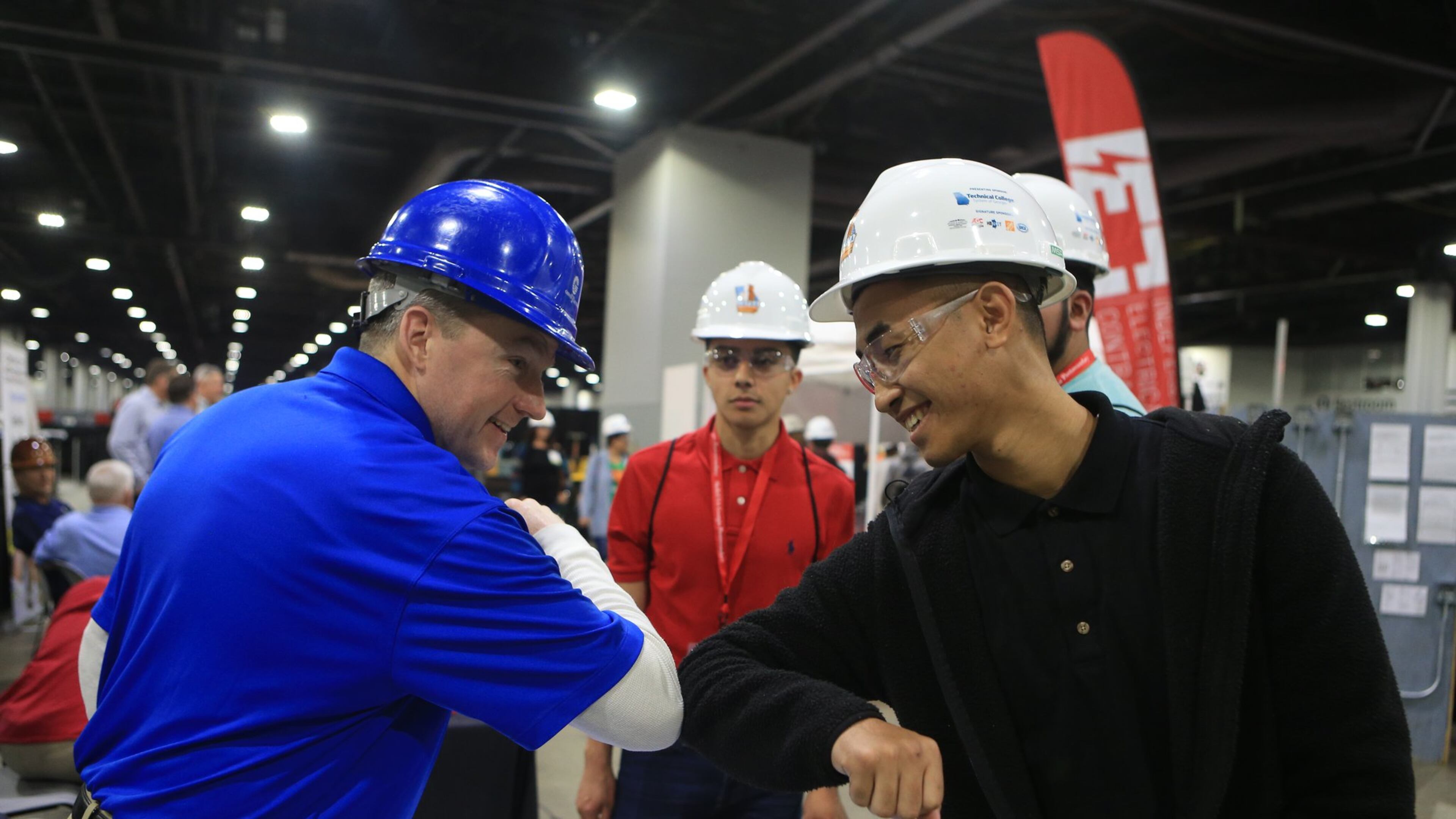Opinion: How to stay optimistic, even in a pandemic

If you are like me, you are feeling a bit of intellectual and emotional whiplash right now. I don’t need to explain why; we all know it. Anxiety-inducing language, like “pandemic,” “social distancing,” and “quarantine,” has taken over our screens and our thoughts. It feels like an existential moment, and for many of us, it is. The current situation not only presents a risk of serious health issues, but of economic and social ones as well. Businesses are struggling to survive, and institutions are challenged like never before in our lifetime.
And yet — the mindset we need to have, we must have, is that this too shall pass. This moment, as complicated and concerning as it is for our city, our region, and our nation, is not forever. It might be the "new normal," but the rapid change of normality will level-off and the steep curve of anxiety will diminish. Facts will triumph over ignorance and good judgment will transcend irrationality.
In other words, there is still reason for optimism.
» COMPLETE COVERAGE: Coronavirus in Georgia
Why am I so confident about this? Well first, we have the basis of history to remind us that we have been through tougher times. Some of us remember World War II, the social upheaval of the 1960s, and the oil shock of the ’70s as moments when society’s systems and perseverance were tested. Others of us remember 9/11 as a time when, like now, the repercussions of unforeseen events in our formative years were hard to get our heads around.
And yet — from each of those experiences we became stronger, and more resilient. We developed mindsets and systems that allowed us to adapt to the changes around us – to learn new ways of relating to one another and new approaches to safeguarding ourselves from similar future shocks. We learned lessons that helped us reach new heights of innovation and endurance — the legacies of which we stand on today.
MORE CORONAVIRUS OPINION:
- Ga. views, experts on COVID-19
- Assessing the economic fallout from COVID-19
- Now it's time to act on coronavirus
- Coronavirus, public health aren't hoaxes
But more than history, we also know that moments like this can galvanize our sense of community. Paradoxically, even at a time when we are being told to stay away from one another, we feel a greater sense of connectedness to each other. We are, in one way or another, all in this together. Yes, some of us are going to feel this much worse than others. That is partially because systems of unequal healthcare or inequitable wealth in our society have us unevenly positioned to respond to this crisis. Some of us can’t afford to miss work, and others of us can’t afford to lose the access to services and programs that keep us above water. While some of us are stocking up on supplies at the grocery store, others are taking stock of our savings and questioning how long this will all last — how long we all can last — without help.
And yet — It is because we are all in this together that we should be optimistic. Moments like this give us common cause. They create opportunities for conscientious compassion. And we also have leaders who see this moment and seize it. Take, for example, Atlanta's Mayor Keisha Lance Bottoms. In a moment when hygiene and hand-washing is more important than ever, she made common-sense changes to suspend the shutoff of water access to those who can't afford it. We have Gov. Brian Kemp, who is showing a steady hand and a clear-eyed understanding of our state's challenges. We also have business leaders who are not only taking responsible actions to accommodate and protect their workforce, but are also helping to halt the spread of misinformation and accelerate innovation that will address the challenges of the coming days.
Of course we can look for the stories of how leaders have been blindsided by this pandemic and what has gone wrong in addressing this fast-moving crisis. We can be pessimistic.
And yet — All of us can also take responsibility for not only washing our hands, but also for widening our eyes to the positive stories all around us. The way neighbors are helping neighbors, and the way communities are rallying to protect the most vulnerable. We can also take responsibility for being part of those stories — for focusing on our instincts of philanthropy, not fear. To give and not to grab. We all can be part of a wave of resilience – of a perspective of optimism as opposed to pessimism.
Yes, the coronavirus/COVID- 19 seems cruel. Fear and irrationality seem like they are rampant. In days like this, hoarding seems like a logical reaction. And so many of us feel frustrated, isolated, and alone.
And yet — we need to remember:
- Competence is greater than cruelty.
- Fellowship is greater than fear.
- Empathy is greater than irrationality.
- Helping does more than hoarding.
And most of all, we need to remember that our community is stronger than the coronavirus.
So in addition to listening to informed sources, washing our hands, and taking care of ourselves individually and collectively, let’s also do our best keep a positive perspective. It might not be exactly what the doctors ordered, but like a spoonful of sugar, it will no doubt help the medicine go down a lot easier.
And that is how to stay optimistic in a pandemic.
Seth Cohen is founder of Applied Optimism, an Atlanta-based community and organizational design lab.
More Stories
The Latest

